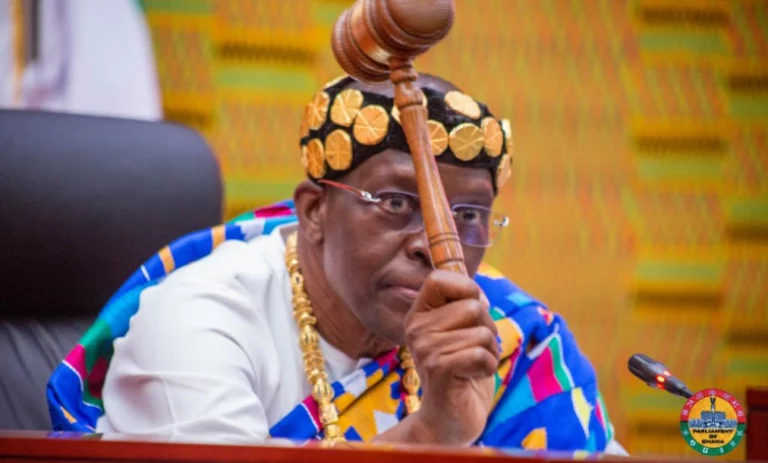Alban Sumana Kingsford Bagbin, Speaker of the House, has warned organizations against using national service members as errand boys and girls.
He claims that some service personnel are sent to buy roasted plantain, or “Kofi Brokeman,” because they lack chairs to sit on.
Speaking at the 50th anniversary of the National Service Scheme’s launch at the University of Professional Studies in Accra was former Nadowli/Kaleo Member of Parliament Alban Bagbin.
The Speaker was concerned that some organizations, which fail to shape the personnel deployed to their outfits, waste that “critical” year for the development of personnel.
The National Service Personnel of the scheme, who made up the majority of the attendees at the ceremony, applauded heartily after his remarks.
“But I want to plead with my brothers and sisters, who are leaders in various public institutions and private sector organisations not to turn service personnel into messengers, errand boys and girls. Please don’t be sending them to buy you ‘Kofi Brokeman’ (roasted plantains). It is a very critical year for their development. Don’t waste it,” he said.
He continued that, “many of them don’t even have a place to sit, and they loiter around, and people treat them with contempt. These are lovely souls that have been sent into your hands. And that one year is meant for you to mold the person. We are now in a global village – a very competitive village.
“The national service personnel that we have today, and they have shown through their work in various institutions that in spite of the skeletal digital infrastructure in this country, our youth have at national competitions come first in the whole world.
You can recall the number of times our students have won the first position in robotics in the world competition, and so after that, they are asked to come and serve the nation for just one year, acclimatise and be the unique Ghanaians that we are. Then you turn them into errand boys and girls. The girls will be lucky if they are not violated.”
Mr. Alban Bagbin lent his support to the argument that the national service program needs to be well-resourced and integrated into development strategies in order to be properly repositioned and be sustainable.
He continued by saying that the scheme’s main objectives should be in line with the nation’s vision and its long-term development objectives.

